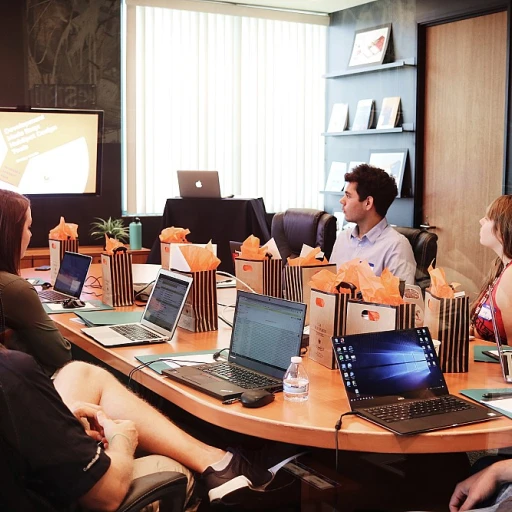
The Rise of Precheck Background Checks
Introduction to Modern Background Screening
In recent years, precheck background checks have become an increasingly essential component for organizations seeking efficient and reliable employment screening. With rising demands for speed and accuracy, sectors like healthcare and human resources are in pursuit of methods that not only comply with privacy policy obligations but also streamline critical hiring processes.
Driving Factors Behind the Trend
The surge in popularity of precheck services is largely fueled by evolving workplace requirements and regulatory expectations. With technology at the forefront, companies leverage tools that provide comprehensive background data, ensuring that potential employees meet industry-specific standards. Access to a copy report with details of criminal offenses, credit checks, and drug testing results empowers organizations to make informed decisions swiftly.
Moreover, TSA precheck initiatives exemplify how sectors emphasize security while minimizing processing time. This trend is not limited to travel; industries like healthcare organizations also prioritize quick yet thorough checks to facilitate timely employment decisions.
Challenges and Solutions
Despite its benefits, implementing precheck background checks can present challenges, such as navigating complex user agreements or addressing disqualifying criminal offenses. Companies must balance efficiency with compliance, ensuring that their approach respects individual rights. By turning to advanced screening solutions and partnering with firms like Cisive, organizations can address these hurdles while promoting safety and integrity.
For more on the in-depth aspects of job background checks, visit our understanding of job background checks page.
Key Trends in Background Screening
Noteworthy Developments in Background Check Procedures
The world of background checks is undeniably evolving, impacted by technological innovation and an increasingly complex human resources landscape. Here are some key trends shaping this domain:
- Integration of Advanced Technology: The incorporation of artificial intelligence and advanced data analytics is revolutionizing how background screenings are conducted. These technologies provide more accurate and efficient screenings, ensuring that potential employees are thoroughly vetted without unnecessary delays.
- Emphasis on Comprehensive Screening: There's a growing need for thorough comprehensive background checks. Employers, especially in sensitive sectors like healthcare, are focusing on detailed employment screening services that include criminal offenses, credit checks, and drug testing.
- Rise of Precheck Services: As companies aim to fill positions quickly, precheck services are gaining traction. These services streamline the process, providing expedited status updates while maintaining compliance with privacy policies and user agreements. Precheck solutions, such as those offered by the Cisive company, ensure that TSA and healthcare organizations can trust the background check reports.
- Balancing Privacy Concerns: With increasing scrutiny on data privacy, businesses must navigate the delicate balance between thorough checks and respecting candidate privacy. Respecting privacy policies while conducting effective screenings remains a top priority.
- Adverse Action Protocols: More organizations are implementing structured procedures for adverse action, ensuring candidates are notified and given a chance to respond before final employment decisions are made.
These trends underscore the dynamic nature of background checks, where innovation meets regulation, creating a robust framework for employment screening and beyond.
Challenges in Implementing Precheck Background Checks
Overcoming Hurdles in Precheck Background Check Implementation
Implementing precheck background checks is crucial for organizations aiming to streamline their hiring process, but it comes with its own set of challenges. These challenges often involve a delicate balance between efficiency, accuracy, and privacy.
Firstly, the incorporation of precheck services can sometimes clash with existing privacy policies. As organizations like healthcare providers and the TSA adopt extensive background checks, they must ensure compliance with privacy regulations, such as those governing credit checks and contact information handling. Human resources departments must be meticulous in forming agreements that respect the user's rights.
Another significant challenge is adapting to the diverse demands for background screening services across different sectors. Employment screening might require drug testing in healthcare environments or thorough checks for disqualifying criminal offenses in security-sensitive jobs. The specific criteria for what disqualifies a candidate can vary greatly depending on the role and industry.
The accuracy and reliability of background check reports are also paramount. A report needs to provide correct status updates while evaluating factors like criminal offenses or healthcare background screening results. Companies providing these checks must avoid errors that could lead to adverse action against potential hires, while also ensuring that candidates can easily access a copy of their report if necessary.
Organizations often seek solutions from specialized firms to navigate these complexities. A company like Cisive, with its focus on thorough precheck background screening, can offer tailored services to meet these needs. While technology plays a role in streamlining these processes, the human element in interpreting and managing background check data remains essential.
With the ongoing developments in regulations like South Carolina's Bill 3537, which impacts background checks, staying informed and up-to-date becomes even more critical. Organizations must navigate these legislative waters carefully to maintain compliance and ensure smooth implementation of their precheck initiatives.
Successfully overcoming these hurdles involves a comprehensive strategy that includes leveraging expert services, ensuring adherence to privacy and regulatory standards, and maintaining open lines of communication with potential hires to address any screening concerns or errors.
Explore more about the impact of South Carolina's Bill 3537 on background checks to understand how legislative changes can further complicate background check procedures.
The Role of Technology in Background Checks
Technology's Impact on Enhancing Background Checks
Technology's continuous advancement has significantly influenced the realm of background screening. In an era where precision and quick turnaround are highly valued, tech-driven solutions play a paramount role, particularly in precheck processes. For instance, the integration of automated systems in employment screening offers far-reaching improvements. These systems can fill gaps that manual processes might overlook and provide users with comprehensive reports swiftly. Such efficiency is crucial, especially in high-demand sectors like healthcare, where the need for prompt, accurate background checks is vital due to privacy policy considerations and the complexity inherent in healthcare background screening. Moreover, technological innovation brings enhanced rigor to precheck solutions by leveraging data analytics and AI. These tools dive deeper into credit history, drug testing results, and even minor offenses that may otherwise skip standard manual checks, ensuring a thorough evaluation process. Applications like TSA Precheck, which utilizes cutting-edge technology to streamline security processes, illustrate how modern tech can provide solutions that balance security and user convenience effectively. These innovations reflect the broader trend where technology can adeptly handle adverse action notifications by automating alerts when disqualifying criminal offenses or other red flags are identified during screening. The adoption of tech-driven services in background checks extends to improving privacy policies. Maintaining user agreement terms and rights reserved while harnessing sophisticated data handling protocols ensures that individual privacy is respected even as more comprehensive data analysis is conducted. As organizations such as the Cisive company and healthcare organizations increasingly turn to modern solutions for their employment screening needs, the role of technology becomes ever more critical. Recognizing the potential barriers and understanding the benefits of these advanced techniques will undoubtedly lead to more streamlined, accurate, and secure precheck processes.Balancing Privacy and Security in Background Checks
Balancing Individual Privacy and Security Needs
In the evolving landscape of employment screening, balancing privacy and security remains a crucial aspect that organizations must diligently address. This intricate dance between safeguarding sensitive information and ensuring a comprehensive background check process is at the forefront of modern discussions regarding background screening services. Privacy considerations come into play when dealing with personal data, especially with checks related to criminal offenses and credit history. Prospective employees have legal rights protected under various privacy policies and user agreements, ensuring that their data is handled responsibly. Organizations must ensure transparency about how they collect, process, and store background data.- Security Assurance: Employers often seek to mitigate risks associated with hiring by implementing robust precheck processes. This includes reviewing disqualifying criminal offenses and verifying tsa precheck status. Such measures provide a layer of security that reaffirms the organization's commitment to a safe work environment, particularly in sensitive sectors like healthcare.
- Healthcare Background Needs: For healthcare organizations, maintaining the privacy of employee data is critical, yet ensuring that all workers meet stringent safety standards remains essential. Background screenings, including drug testing and verification of employment history, provide solutions and peace of mind.













